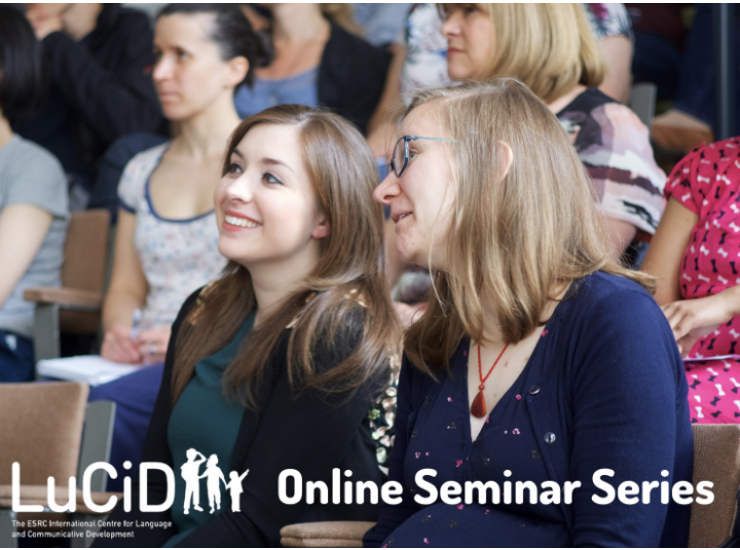
Our first LuCiD seminar of the new academic year 2022/23 and the first in-person talk since February 2020 is on Tuesday 6th September 2022 (11am UK time). Prof Usha Goswami (University of Cambridge) will talk about Language Acquisition: A Temporal Sampling Perspective.
Abstract: Recent insights from auditory neuroscience provide a new perspective on how the brain encodes speech. Using these recent insights, I will provide an overview of key factors underpinning individual differences in children’s development of language and phonology, starting out from the context of our child studies exploring atypical phonological development (dyslexia). I will describe a neural oscillatory “temporal sampling” framework for linking amplitude rise time discrimination to linguistic development by children. I will show that sensitivity to the amplitude modulation (AM) structure of the amplitude envelope of infant-directed and child-directed speech is key to individual differences in phonological development, and that this AM structure contains acoustic statistical cues to different phonological units. I will then discuss how we have been applying Temporal Sampling theory to language acquisition by giving a selective overview of findings from our infant longitudinal studies, SEEDS and BabyRhythm. I will aim to show that amplitude rise time discrimination and neural oscillatory temporal sampling play key roles in early language development.
Goswami, U. (2019). Speech rhythm and language acquisition: An amplitude modulation phase hierarchy perspective. Annals of the New York Academy of Sciences, e14137.
Kalashnikova, M., Goswami, U., Burnham, D. (2020). Novel word learning deficits in infants at family risk for dyslexia. Dyslexia, e1649.
Attaheri, A. et al. (2022). Delta- and theta-band cortical tracking and phase-amplitude coupling to sung speech by infants. Neuroimage, 247, 198648.
Ní Choisdealbha, A., et al. (2022a). Neural detection of changes in amplitude rise time in infancy. Developmental Cognitive Neuroscience, 54, 101075.
Ní Choisdealbha, A., et al. (2022b), Cortical Oscillations in Pre-verbal Infants Track Rhythmic Speech and Non-speech Stimuli. https://psyarxiv.com/vjmf6/
How to join the seminar: This seminar will be the first one to take place in person at the University of Liverpool but we will provide a blended approach for anyone who is unable to attend in person. As always the seminar is free to attend & booking isn't required, just get in touch to request the zoom link and don't forget to join the seminar mailing list.
Where to find us: University of Liverpool, Lesley Hearnshaw Theatre in the Eleanor Rathbone building. For details of travelling to Liverpool University by car, train or bus follow the link https://www.liverpool.ac.uk/media/livacuk/study/publications/how-to-find-us.pdf . From the main entrance of the Eleanor Rathbone building turn right by the Building Manager's office and go through the red door. The Lesley Hearnshaw lecture theatre is on the left.
